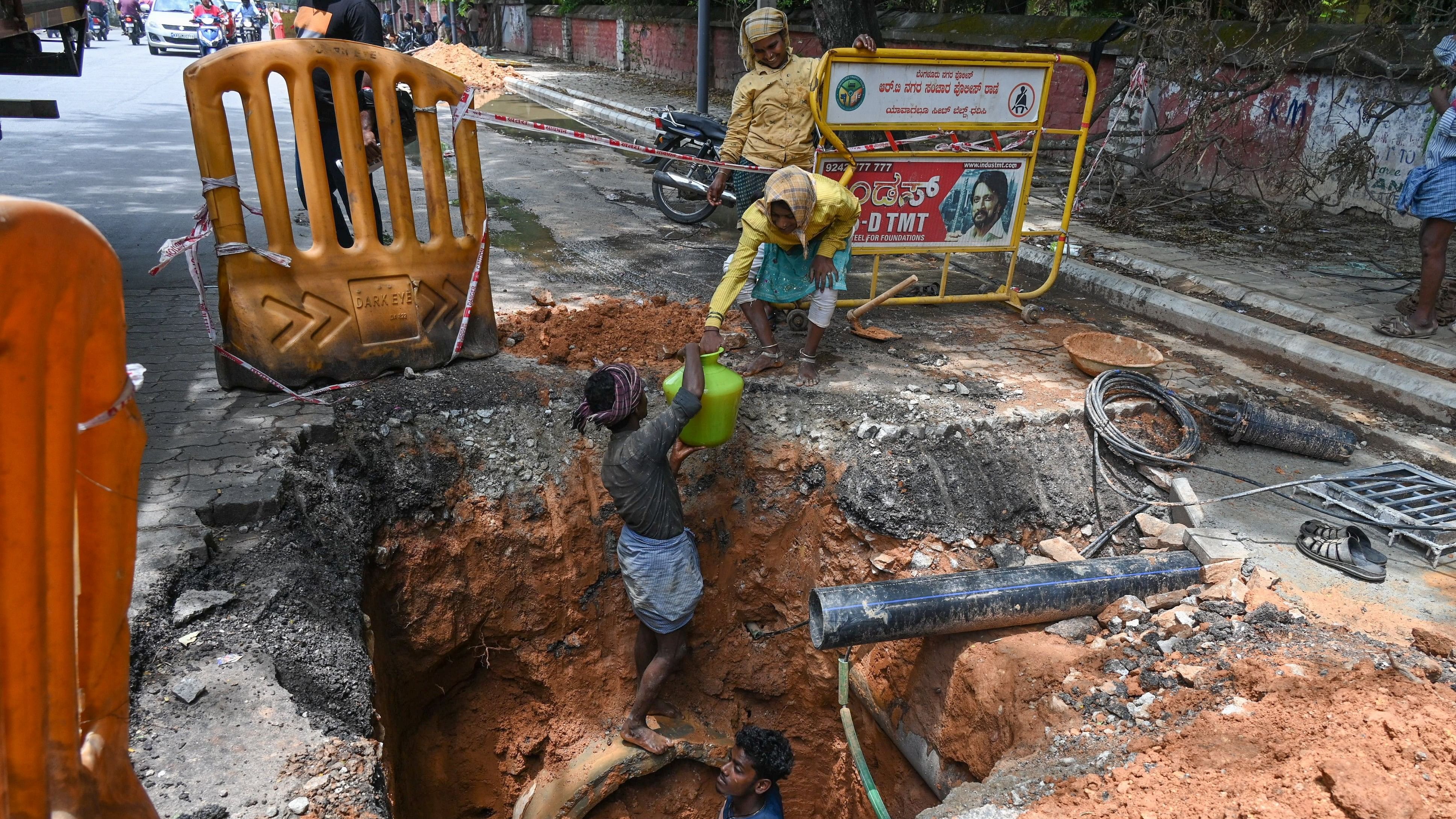
Roads dug up to lay underground sewage pipes.
DH FILE PHOTO
Bengaluru: The city requires an additional 400 km of sewerage lines and at least nine more sewage treatment plants (STPs) to establish a comprehensive sewage collection system and prevent untreated sewage from flowing into lakes, a survey by the Bangalore Water Supply and Sewerage Board (BWSSB) has revealed.
The proposed infrastructure, aimed at addressing gaps in sewage management, would cost approximately Rs 850 crore, which the board hopes to secure through a World Bank loan promised for the city.
The new infrastructure extension is needed in the 110 villages added to the Bruhat Bengaluru Mahanagara Palike (BBMP) limits in 2008. This is in addition to the 1,538 km of pipeline and 13 STPs already under construction in these areas.
Approximately 80% of the sewage system work has been completed, with officials aiming for full completion by the year’s end. So far, the BWSSB has invested around Rs 925 crore in developing the sewage infrastructure for these villages.
“We conducted the survey to identify gaps in the current sewerage system, as there have been numerous complaints about sewage entering stormwater drains and eventually contaminating lakes. The findings indicate that we need an additional 400 km of sewer lines. We have prepared a detailed proposal and are optimistic about receiving funds from the World Bank,” a senior BWSSB official told DH.
The survey assessed the volume of sewage generated in the 110 villages and pinpointed areas where raw sewage is seeping into stormwater drains (SWDs) and lakes.
Lake conservation activists have raised concerns over the poor water quality of about 104 lakes located in these regions, largely due to sewage inflow. The activists have called for phased release of funds, contingent on measurable improvements.
"The Karnataka State Pollution Control Board (KSPCB) regularly monitors the water quality in these lakes. Most are heavily polluted, with poor water quality. If the BWSSB plans to invest significant amounts in building infrastructure, they must be held accountable. Funding should be approved only when we see clear improvements in the lake water quality,” said V Ramprasad, co-founder and convener of Friends of Lakes.
Status of sewerage network in the city
Total sewerage network length: Approximately 8,386 km
Total number of STPs: 33
Sewage treatment capacity: 1372.5 millions of liters per day (MLD)
Total sewerage network being laid in 110 villages (work in progress): 1,538 km
STPs being constructed: 13
Cost: Rs 925 crore
Additional sewerage network required (according to the survey): 400 km
New STPs required: 9
Estimated cost: Rs 850 crore